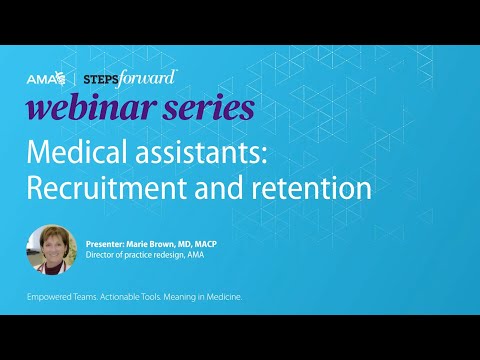Canada’s Medically Assisted Dying Laws
Contents [show]
As of June 2016, Canada’s laws on medically assisted dying have been significantly changed. Here’s what you need to know about the new laws.
Checkout this video:
Introduction
In June 2016, the Canadian government passed Bill C-14, which legalized medically assisted dying (also known as physician-assisted suicide or euthanasia) in Canada. The bill was passed in response to a ruling by the Supreme Court of Canada, which found that the existing laws banning medically assisted dying violated the Canadian Charter of Rights and Freedoms.
Under the new law, medically assisted dying is only available to Canadian citizens and permanent residents who are at least 18 years old and who are suffering from a “grievous and irremediable” medical condition. The condition must be one that causes enduring suffering that is intolerable to the individual in their current state.
Medically assisted dying is not available to people who only have a mental illness, even if that illness causes them suffering. It is also not available to people who are simply experiencing old age or who are terminal but not currently experiencing any pain or suffering.
There are a number of safeguards in place to ensure that people who choose medically assisted dying do so freely and without coercion. For example, two independent witnesses must sign off on the request for medically assisted dying, and the person must be assessed by two different physicians in order to confirm that they meet all of the criteria.
There is also a mandatory waiting period of 15 days between the request and the actual procedure, during which time the person can change their mind at any time.
What is medically assisted dying?
Medically assisted dying (MAD) is when a doctor provides a terminally ill patient with the means to end their life, at the patient’s request.
MAD is sometimes also called “physician-assisted death” or “doctor-assisted death”. It is different from euthanasia, which is when a doctor directly ends a patient’s life at their request.
In Canada, MAD is legal in certain circumstances. The federal government passed a law in 2016 that gives eligible patients the right to request MAD from a physician.
To be eligible for MAD, a person must:
– be 18 years of age or older;
– be mentally capable of making decisions about their own health care
– have a grievous and irremediable medical condition (an illness, disease or disability) that causes enduring suffering that is intolerable to them; and
– make the request for MAD voluntarily, without coercion from anyone else.
If you meet all of these criteria, you can ask your doctor for MAD. If they agree that you meet the criteria, they can provide you with the means to end your life (usually through lethal injection).
If you are not eligible for MAD, there are still other options available to you. For example, you can ask your doctor to help you die by withdrawing lifesaving treatment or by providing palliative sedation until you die (this is sometimes called “terminal sedation”). You can also refuse treatment altogether.
The decision of whether or not to receive MAD is a personal one. It is important to discuss all of your options with your doctor and loved ones before making a decision.
Who is eligible for medically assisted dying in Canada?
In order to be eligible for medical assistance in dying in Canada, a person must:
– be a Canadian citizen or permanent resident of Canada
– be 18 years of age or older
– have mental capacity throughout the request and give informed consent
– have a grievous and irremediable medical condition
– make the request voluntarily, free from coercion and under no external pressure
The person must also be suffering intolerably from their medical condition.
The process of obtaining medically assisted dying
In order to obtain Medical Assistance in dying in Canada, you must be:
-a Canadian citizen or permanent resident of Canada
-18 years of age or older and capable of making your own health care decisions
-suffering from a grievous and irremediable medical condition
-in an advanced state of irreversible decline in capability
-experiencing intolerable physical or mental suffering as a result of your condition or its treatments
-acting freely, persistently, and with fully informed consent
Your request must be approved by two independent doctors or nurse practitioners. Once approved, you must wait for a minimum of 15 days before the procedure is carried out, unless your death is imminent. You also have the right to change your mind at any time before the procedure is carried out.
The role of the physician
In Canada, physician-assisted dying is governed by legislation at the federal and provincial/territorial levels. The Assisted Human Reproduction Act (AHRA) and related regulations, which came into force on April 1, 2004, provide a legislative framework for practices related to assisted human reproduction and human cloning.
At the provincial/territorial level, jurisdictions have their own laws and policies governing access to physician-assisted dying. These laws are generally more permissive than the federal legislation, and allow for greater flexibility in how physicians can provide assistance.
Physicians play a key role in the provision of physician-assisted dying services. They are responsible for assessing whether a person meets the eligibility criteria set out in the legislation, and must ensure that all required procedures are followed in order to protect the person’s safety and well-being.
In order to be eligible for physician-assisted dying, a person must:
be 18 years of age or older;
be mentally competent;
have a terminal illness with a prognosis of death within 6 months;
be experiencing unbearable suffering that cannot be relieved by any means;
make their request voluntarily and not be coerced;
understand the nature and consequences of the procedure; and
give their informed consent.
Physicians must also complete certain administrative tasks related to physician-assisted dying, such as:
contacting the provincial or territorial medical regulator;
making sure that two independent witnesses attest to the person’s request;
ensuring that there is a 10-day waiting period between the request and administration of the lethal dose of medication;
providing information to the person about alternatives to physician-assisted dying;
referring the person to counseling if they have doubts about their decision;
documenting all aspects of the case; and
reporting to provincial or territorial authorities after the procedure has been carried out.
The role of the patient
In order to be eligible for Medical Assistance in dying, a person must first meet certain criteria as outlined in the legislation. The following is a summary of these criteria. A patient must:
-Be eligible for health services funded by a government in Canada
-Be at least 18 years old and mentally competent
-Have a grievous and irremediable medical condition
-Make a voluntary request for Medical assistance in dying
-Give informed consent to receive medical assistance in dying
Once a person has met these criteria, they must then undergo a series of assessments carried out by two independent medical practitioners. These practitioners must be satisfied that the person meets all of the eligibility criteria before they can proceed with providing medical assistance in dying.
The role of the family
In Canada, people seeking medically assisted dying (MAID) must be mentally competent adults who are suffering from a grievous and irremediable medical condition that causes enduring suffering that is intolerable to them.1
The role of the family is important in the MAID process. The person seeking MAID must make the request themselves, and it must be done in writing.2 The request can be made to a doctor or nurse practitioner. If the request is made to a doctor, they must then consult with a colleague who is also a doctor or nurse practitioner.3
If the request meets all of the legal requirements, then MAID can proceed.4 The attending physician or nurse practitioner must administer the procedure, which must be done in an approved location (usually a hospital).5
1 “Medical Assistance in Dying.” Health Canada, Government of Canada, 13 Feb. 2020, www.canada.ca/en/health-canada/services/medical-assistance-dying.html.
2 “Medical Assistance in Dying.” Health Canada, Government of Canada, 13 Feb. 2020, www.canada.ca/en/health-canada/services/medical-assistance-dying.html.
3 “Medical Assistance in Dying.” Health Canada, Government of Canada, 13 Feb. 2020, www.canada.ca/en/health-canada/services/medical-assistance-dying.html#h_families_role_in_maid process”>www.canada
The cost of medically assisted dying
According to the CBC, the cost of medically assisted dying in Canada can range from $200 to $2000. The price depends on the province, the type of service, and whether or not the patient has private insurance.
In Ontario, for example, the cost of a medically assisted death at a hospital is $200. The cost of a home visit is $350, and the cost of an overnight stay is $2000. Patients who do not have private insurance are eligible for public funding, which covers the cost of the procedure up to $4500.
Quebec has a similar system to Ontario, with public funding covering up to $4500 of the cost of a medically assisted death The province also has a subsidy program that covers up to $1500 of the cost of funeral services for those who choose to be cremated.
Nova Scotia will cover the cost of a medically assisted death up to $1500 for those who do not have private insurance. The province also offers a subsidy program that covers up to $500 of funeral expenses.
New Brunswick will cover up to $230 for those without private insurance.
Newfoundland and Labrador does not currently have any legislation in place regarding the cost of medically assisted dying, but the province is working on implementing a system similar to Ontario’s.
The benefits of medically assisted dying
There are many benefits to medically assisted dying, including providing patients with a dignified death, reducing suffering, and giving patients more control over their lives. Medically assisted dying laws also give patients the peace of mind that they will not be a burden on their loved ones.
The challenges of medically assisted dying
In June 2016, the Canadian government passed a law making medically assisted dying legal in the country. However, the law has not been without its challenges.
One of the biggest challenges has been determining who is eligible for medically assisted dying. The law stipulates that only those with a “serious and incurable illness, disease or disability” and who are “in an advanced state of irreversible decline” are eligible. However, there has been some debate over what exactly qualifies as a “serious and incurable illness, disease or disability.”
Another challenge has been ensuring that people who are eligible for medically assisted dying have access to it. While the law stipulates that all hospitals and health care facilities must provide information about medically assisted dying to patients, there have been some reports of hospitals refusing to provide the service.
There have also been challenges in making sure that people who choose medically assisted dying do so willingly and without coercion from family members or others. To help address this issue, the Canadian government has put in place a number of safeguards, including requiring two independent witnesses to confirm that the person requesting medically assisted dying is doing so voluntarily.
Despite these challenges, medical assistance in dying is now legal in Canada and is available to those who meet the eligibility criteria.







